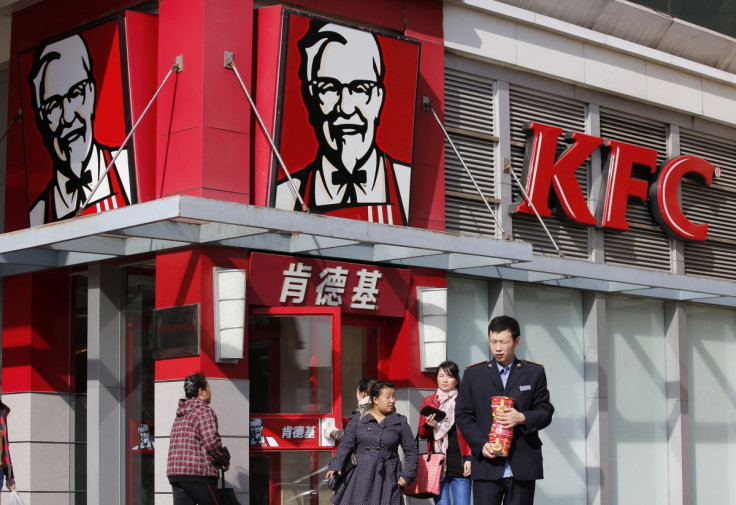KFC Owner Cuts Profit Predictions After China Food Scandal

Yum Brands, owner of restaurant chains KFC and Pizza Hut, has cut its yearly profit outlook, primarily due to the recent food security scare in China that hurt its sales significantly.
The company currently estimates yearly earnings per share growth between 6% and 10%, compared to the previous projection for growth of at least 20%.
For the third quarter, the company reported a 1% growth in worldwide sales with restaurant margin declining 2.7 percentage points to 14.9%. Sales in China declined 9% for the quarter, with same-store sales declining 14%.
The sales decline in China comes after a food security scare in the country, as Shanghai Husi Food, a supplier to KFC and Pizza Hut, was found selling chicken and beef past expiry dates.
Shanghai's Food and Drug Administration raided Shanghai Husi Food facilities and seized more than 5,000 boxes of expired meat. The authorities also cancelled the company's license and detained a number of officials.
Subsequently, Yum Brands apologised to its Chinese customers and said it was taking the products concerned off the shelves. It also terminated its relationship with OSI Group, the owner of Shanghai Husi, globally.
In its latest earnings release, the company noted that the food scandal "has shaken consumer confidence and impacted brand usage."
Yum is the largest foreign restaurant operator in China with more than 6,400 restaurants. The company generates 75% of its total revenue from the world's most populous country.
"Even though OSI was a minor supplier, sales at KFC and Pizza Hut were disproportionately impacted given our category-leading positions. While sales are rebounding, they continue to be negative," the company said in the statement.
"Our brands have proven resilient over time and we expect this to be the case with this situation as well."
The company said sales typically take six to nine months to recover from these types of events.
"I'm absolutely confident in Yum! Brands' ability to deliver strong, sustainable growth in the years ahead despite the recent supplier incident in China, which has significantly impacted China sales, leading us to reduce our full-year EPS outlook," said David Novak, Yum Brands chairman and CEO.
"China sales are on the path to recovery and we expect to develop at least 700 new restaurants in China this year, which we're confident will ultimately deliver high returns as we further capitalize on the world's fastest growing consuming class."
© Copyright IBTimes 2025. All rights reserved.






















